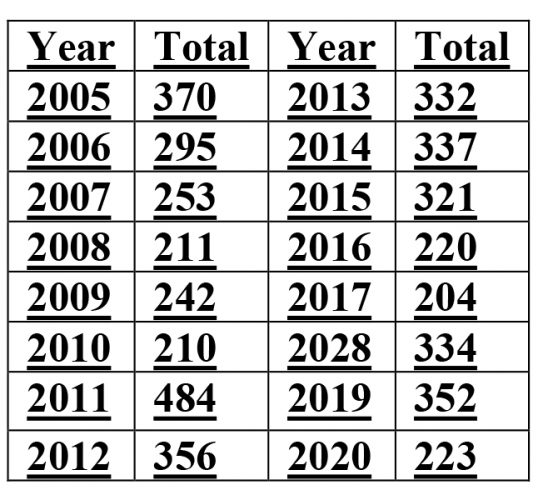Last week’s column represents an earnest effort on my part, to portray, largely in its own words, ExxonMobil’s official posture on global climate change and the energy transition away from fossil fuels usage. I have endeavoured to be “full and fair” to the company even though I believe its actions to date have mimicked those of a caricature of a poster child of a big oil corporation in blind pursuit of profit at any cost. In doing so, it is living up to expectations of a corner-cutting corporation in pursuit of profit and willing to behave like a so-called “new tobacco” firm.
However, not wanting to appear, even remotely, to be behaving as the company’s mirror image would, [through wanton distortion or disregard for its position] as some elements in the public debate do (noise and nonsense polemics) my critique of the corporation’s posture is firmly rooted on an evaluation of company actions.
Wrap-up
To round off last week’s presentation of its posture on global climate change and energy transition, I report here briefly that ExxonMobil’s website unabashedly declares “its continued focus on satisfying energy needs while simultaneously addressing the risk of climate change”. Further, it advises this will be executed through: 1) reducing its own emissions; 2) helping its consumers to do likewise; and 3) advancing research to find new low carbon emission technologies for the future.
Given this, there are four commercial aspects to this guidance; namely, 1) reducing operations emissions by avoidance and improved energy efficiencies; 2) serving consumer needs to reduce their emissions; 3) developing new technologies; and 4) engaging policy issues proactively.
Critique
My critique of ExxonMobil’s conduct in relation to global climate change and energy transition centres on four major areas of its actions over the years. These are first its record of environmental damage through oil spills. Second, longstanding allegations against the company that are still being adjudicated in the Courts in regard to the firm’s deceitful behaviour. Third the firm’s subterfuge and practiced disinformation in relation to its practice in denial of climate change and global warming. And, fourth empirical studies that reveal significant gaps between carbon reduction pledges made by ExxonMobil and its actionable outcomes.
In what follows this week and after, my critique will be presented in the order indicated here. Methodologically I stress upfront that this critique is directed at ExxonMobil’s actions and is not directed at hypothetical and speculative behaviours.
Oil spills
For purposes of this discussion and the data cited herein I mean by the term oil spill:
“The release of a liquid petroleum hydrocarbon to the environment, especially the marine ecosystem and due to human activity and is a form of pollution.” The definition centres on human action and typical release in ocean and coastal areas where dispersal is rapid [see Wikipedia]
Historically, the costs for clean-up of oil spills vary with their location and volume. These costs can go into billions of US dollars for clean-up and damage compensation. Yet it is fair to state that, the full cost of the environmental damage is rarely compensated for, even in cases where the “polluter pays principle” rules and is applied.
Worldwide, there have been enormous social and political pressures aimed at businesses which cause petroleum oil spills. Firms in the sector cannot avoid hostile civil society responses. And, not surprisingly, over the years, the available data reveal a noticeable reduction in the number of major oil spills due to oil tanker accidents [used as a proxy for spills] which have occurred during the past five decades [see Table1 below]. There were 24.5 spills for an annual average during the 1970s. This was reduced to 1.8 annual spills during the 2010s; a striking decline. The sharpest annual decline occurred between the 1970s, when the series started, and the next decade of the 1980s. Over the 2020-2021 period the annual average has been only 1.0.
Table 1 Global Large Oil Spills [Tanker incidents, 1970s to date]

ExxonMobil oil spills
Based on the definition of an oil spill presented above Table 2 below reveals data on ExxonMobil annual oil spills over the past decade and half ago; 2005 to 2020. The spills are each of one barrel. Further the spills refer to crude oil, chemicals, and drilling liquids. The data reveal a total of 4,745 spills in the decade-and-a-half-long period. The range is from a high of 484 spills in 2011 to a low of 204 in 2017. Leaks in 2020 were 223.
Omitting the outlier year [2011] the average leaks for the years 2005 to 2010, at the beginning of the series, and 2015 to 2020, at the end of the series, were 264 leaks and 276 leaks, respectively. Unlike the global data cited above this is not suggestive of a strong improvement over the span of these of these years.
Table 2
ExxonMobil Oil Spills of at least one barrel 2005-2020

Source: Statista, February 2022
Conclusion
I venture three major conclusions. First the frequency and trend of ExxonMobil’s oil spills/leaks do not engender confidence going forward. Second despite the behavioural risk of moral hazard [to be defined in next week’s column], protecting the Guyana taxpayer requires the Government to pay careful attention to risk management practices and the firm’s insurance coverage. Third the above presentation focuses on the company’s behaviour. It is devoid of the conjectural, hypothetical, or speculative. Next week I provide a sample of ExxonMobil oil spills, before continuing with the critique.










